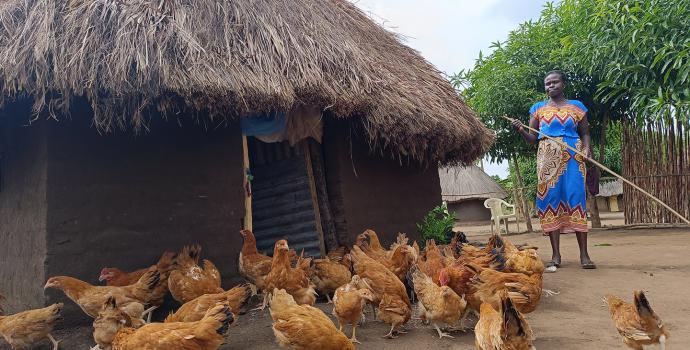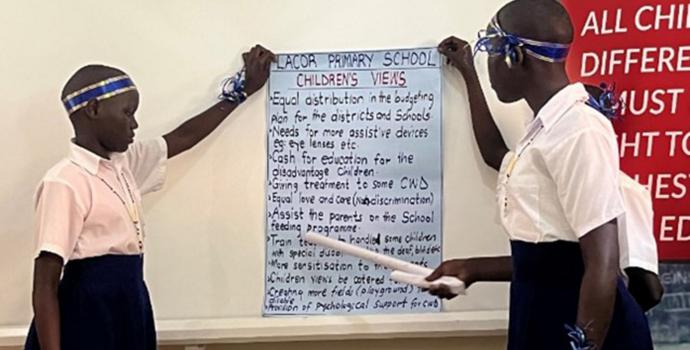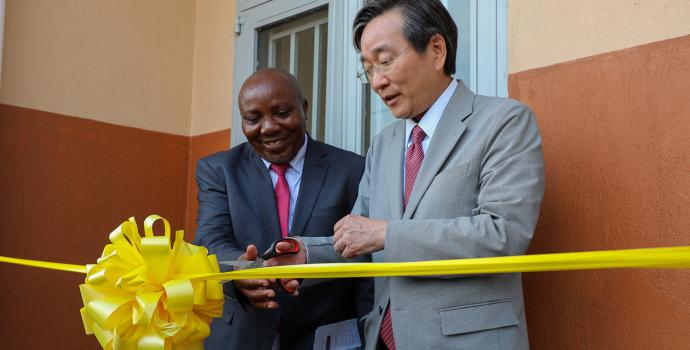Advancing empowernment & self-reliance for refugees

Jessica Aciro, a 31-year-old single mother of four children from South Sudan, has embarked on a remarkable journey of resilience and empowerment in Palabek Refugee Settlement. Since fleeing the insurgency in her home country in 2017, Jessica has navigated through the challenges of providing for her family amidst diminishing food rations and limited opportunities within the settlement.
Upon settling in Palabek Refugee Settlement, Jessica and her children relied primarily on food aid from the World Food Programme to survive. However, as the food rations decreased annually, Jessica recognized the urgent need to find alternative sources of income and sustenance for her family. With a determined entrepreneurial spirit, Jessica ventured into cultivating and selling fresh cowpea vegetables, locally known as ‘Boo’, a delicacy amongst the refugees and the host communities.
The ‘Boo’ was exchanged for maize flour and cooking oil by the refugees which she later sold to the host community at better prices. The income raised from sales of the maize flour and oil was what she used to start up a foodstuff vending business. However, Jessica’s ambition didn’t stop there. Seeking to further improve her family’s livelihood, she expanded her operations by hiring land in the host community and planted sorghum and greens to obtain additional food supplies.
Her resilience and enterprising mindset caught the attention of Save the Children staff members working under the UTHABITI program. In 2023, Jessica was selected to participate in the Life Skills for Success training program, along with 34 other community members. Facilitated by UTHABITI Community Based Facilitators (CBFs), the training equipped participants with essential life skills and empowered them to develop Community Action Plans (CAP) to address livelihood challenges.
Recognizing Jessica’s potential, she was tasked with exploring opportunities within the horticulture value chain. Through UTHABITI’s collaboration with the Rural Finance Initiative (RUFI), a financial institution that Uthabiti supported to establish a branch in Palabek to extend the services to refugees and the host community, Jessica secured shs 100,000 from the group loan and bought 50 chicks from Paluda SACCO which further linked her to HOMA farms.
The profits from her thriving businesses not only enabled Jessica to repay her initial loan but also allowed her to access further financial support from RUFI. With an additional loan, Jessica enhanced her business and supported her children in school. Today, Jessica’s success story serves as an inspiration to her community. She actively shares her poultry management skills with other women, fostering economic empowerment and self-reliance.
Grateful for the transformative impact of the Life Skills for Success training, Jessica acknowledges UTHABITI for empowering her to make informed decisions, strengthen her interpersonal skills, and effectively manage her businesses.




